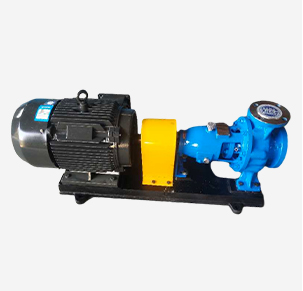Hungarian
- Afrikaans
- Albanian
- Amharic
- Arabic
- Armenian
- Azerbaijani
- Basque
- Belarusian
- Bengali
- Bosnian
- Bulgarian
- Catalan
- Cebuano
- Corsican
- Croatian
- Czech
- Danish
- Dutch
- English
- Esperanto
- Estonian
- Finnish
- French
- Frisian
- Galician
- Georgian
- German
- Greek
- Gujarati
- Haitian Creole
- hausa
- hawaiian
- Hebrew
- Hindi
- Miao
- Hungarian
- Icelandic
- igbo
- Indonesian
- irish
- Italian
- Japanese
- Javanese
- Kannada
- kazakh
- Khmer
- Rwandese
- Korean
- Kurdish
- Kyrgyz
- Lao
- Latin
- Latvian
- Lithuanian
- Luxembourgish
- Macedonian
- Malgashi
- Malay
- Malayalam
- Maltese
- Maori
- Marathi
- Mongolian
- Myanmar
- Nepali
- Norwegian
- Norwegian
- Occitan
- Pashto
- Persian
- Polish
- Portuguese
- Punjabi
- Romanian
- Russian
- Samoan
- Scottish Gaelic
- Serbian
- Sesotho
- Shona
- Sindhi
- Sinhala
- Slovak
- Slovenian
- Somali
- Spanish
- Sundanese
- Swahili
- Swedish
- Tagalog
- Tajik
- Tamil
- Tatar
- Telugu
- Thai
- Turkish
- Turkmen
- Ukrainian
- Urdu
- Uighur
- Uzbek
- Vietnamese
- Welsh
- Bantu
- Yiddish
- Yoruba
- Zulu
Telephone: +86 13120555503
Email: frank@cypump.com
okt . 19, 2024 05:16 Back to list
septic effluent pump
Septic Effluent Pumps Essential Components for Efficient Wastewater Management
Septic systems play a crucial role in wastewater management, especially in rural and suburban areas where municipal sewage systems are absent. Within these systems, the septic effluent pump is a vital component that ensures the effective removal of treated wastewater from the septic tank to the drainage field. Understanding the importance and operation of these pumps can aid homeowners in maintaining their septic systems and preventing costly failures.
A septic effluent pump is designed specifically to handle the final discharge of liquid from a septic tank. Unlike sewage water, which contains solid waste, effluent is primarily liquid and consists of partially treated wastewater that has undergone anaerobic digestion in the septic tank. The pump moves this effluent to the drain field or leach field, where it can further filter through the soil, undergoing natural purification processes that break down contaminants.
One of the primary reasons for using an effluent pump is to facilitate the movement of wastewater from a septic system that is not installed on a naturally sloped terrain. In such cases, gravity alone cannot move the effluent to the drainage area; hence, electric pumps are employed to push the liquid to its designated location. Additionally, effluent pumps are equipped with features that allow them to handle solids and coarse materials, ensuring uninterrupted operation and reduced maintenance needs.
septic effluent pump

When selecting a septic effluent pump, several factors should be considered. The pump's capacity should match the household's wastewater generation to avoid overloading the system. It is essential to choose a durable and reliable model, as pumps are subject to challenging conditions, including varying water levels and potential blockages. Materials used in the pump's construction should be resistant to corrosion and wear, ensuring longevity.
Regular maintenance of septic effluent pumps is critical for the system's overall health. Homeowners should schedule routine inspections to check for any signs of wear, clogs, or mechanical issues. Additionally, it is advisable to keep the area around the pump free from debris and vegetation, as these can interfere with the pump's operation. Proper care can extend the life of the pump and prevent costly repairs down the line.
In conclusion, septic effluent pumps are essential for effective wastewater disposal in many homes. By understanding their function, selecting the right pump, and implementing regular maintenance, homeowners can ensure the longevity and efficiency of their septic systems. Properly managed, these systems provide a sustainable solution for wastewater treatment, protecting both public health and the environment.
-
Heavy-Duty Mining Sludge Pumps - Wear-Resistant Slurry Handling
NewsAug.02,2025
-
Horizontal Split Case Pump with GPT-4 Turbo | High Efficiency
NewsAug.01,2025
-
ISG Series Pipeline Pump - Chi Yuan Pumps | High Efficiency, Durable Design
NewsAug.01,2025
-
Advanced Flue Gas Desulfurization Pump with GPT-4 Turbo | Durable & Efficient
NewsJul.31,2025
-
ISG Series Vertical Pipeline Pump - Chi Yuan Pumps | Advanced Hydraulic Design&Durable Construction
NewsJul.31,2025
-
ISG Series Vertical Pipeline Pump - Chi Yuan Pumps | Energy Efficient & Low Noise
NewsJul.31,2025










